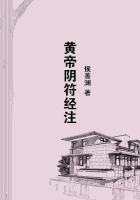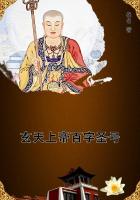The session was drawing toward its close. Senator Dilworthy thought he would run out west and shake hands with his constituents and let them look at him. The legislature whose duty it would be to re-elect him to the United States Senate, was already in session. Mr. Dilworthy considered his re-election certain, but he was a careful, painstaking man, and if, by visiting his State he could find the opportunity to persuade a few more legislators to vote for him, he held the journey to be well worth taking. The University bill was safe, now; he could leave it without fear; it needed his presence and his watching no longer.
But there was a person in his State legislature who did need watching--a person who, Senator Dilworthy said, was a narrow, grumbling, uncomfortable malcontent--a person who was stolidly opposed to reform, and progress and him,--a person who, he feared, had been bought with money to combat him, and through him the commonwealth's welfare and its politics' purity.
"If this person Noble," said Mr. Dilworthy, in a little speech at a dinner party given him by some of his admirers, "merely desired to sacrifice me.--I would willingly offer up my political life on the altar of my dear State's weal, I would be glad and grateful to do it; but when he makes of me but a cloak to hide his deeper designs, when he proposes to strike through me at the heart of my beloved State, all the lion in me is roused--and I say here I stand, solitary and alone, but unflinching, unquailing, thrice armed with my sacred trust; and whoso passes, to do evil to this fair domain that looks to me for protection, must do so over my dead body."
He further said that if this Noble were a pure man, and merely misguided, he could bear it, but that he should succeed in his wicked designs through, a base use of money would leave a blot upon his State which would work untold evil to the morals of the people, and that he would not suffer; the public morals must not be contaminated. He would seek this man Noble; he would argue, he would persuade, he would appeal to his honor.
When he arrived on the ground he found his friends unterrified; they were standing firmly by him and were full of courage. Noble was working hard, too, but matters were against him, he was not ****** much progress.
Mr. Dilworthy took an early opportunity to send for Mr. Noble; he had a midnight interview with him, and urged him to forsake his evil ways; he begged him to come again and again, which he did. He finally sent the man away at 3 o'clock one morning; and when he was gone, Mr. Dilworthy said to himself, "I feel a good deal relieved, now, a great deal relieved."
The Senator now turned his attention to matters touching the souls of his people. He appeared in church; he took a leading part in prayer meetings; he met and encouraged the temperance societies; he graced the sewing circles of the ladies with his presence, and even took a needle now and then and made a stitch or two upon a calico shirt for some poor Bibleless pagan of the South Seas, and this act enchanted the ladies, who regarded the garments thus honored as in a manner sanctified.
The Senator wrought in Bible classes, and nothing could keep him away from the Sunday Schools--neither sickness nor storms nor weariness.
He even traveled a tedious thirty miles in a poor little rickety stagecoach to comply with the desire of the miserable hamlet of Cattleville that he would let its Sunday School look upon him.
All the town was assembled at the stage office when he arrived, two bonfires were burning, and a battery of anvils was popping exultant broadsides; for a United States Senator was a sort of god in the understanding of these people who never had seen any creature mightier than a county judge. To them a United States Senator was a vast, vague colossus, an awe inspiring unreality.
Next day everybody was at the village church a full half hour before time for Sunday School to open; ranchmen and farmers had come with their families from five miles around, all eager to get a glimpse of the great man--the man who had been to Washington; the man who had seen the President of the United States, and had even talked with him; the man who had seen the actual Washington Monument--perhaps touched it with his hands.
When the Senator arrived the Church was crowded, the windows were full, the aisles were packed, so was the vestibule, and so indeed was the yard in front of the building. As he worked his way through to the pulpit on the arm of the minister and followed by the envied officials of the village, every neck was stretched and, every eye twisted around intervening obstructions to get a glimpse. Elderly people directed each other's attention and, said, "There! that's him, with the grand, noble forehead!" Boys nudged each other and said, "Hi, Johnny, here he is, there, that's him, with the peeled head!"
The Senator took his seat in the pulpit, with the minister' on one side of him and the Superintendent of the Sunday School on the other.
The town dignitaries sat in an impressive row within the altar railings below. The Sunday School children occupied ten of the front benches.
dressed in their best and most uncomfortable clothes, and with hair combed and faces too clean to feel natural. So awed were they by the presence of a living United States Senator, that during three minutes not a "spit ball" was thrown. After that they began to come to themselves by degrees, and presently the spell was wholly gone and they were reciting verses and pulling hair.















